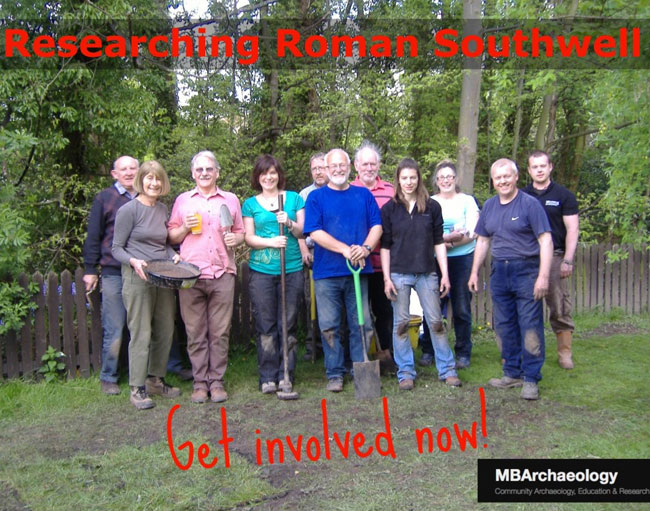The project seeks to investigate the town’s Roman past while providing training and hands-on experience, help local people to become involved in their local heritage, and provide a platform for both social and mental wellbeing. It aims to show that archaeology is fun, stimulating, educational, rewarding and, most importantly, accessible to all.
The Project
In order to fund the archaeological dig we need to raise enough money to cover the professional support and community training, as well as the finds specialists and a full written report of the dig. The full programme of activities is planned to take place between May – December 2015.
In order to raise this money, we are embarking on a fundraising campaign that will see local activities and events take place over the coming months. We are also looking to secure donations from local people and businesses! AND YOU!!!
http://digventures.com/projects/researchingromansouthwell/
Currently they are 11 days away from the end… and 67% funded. Come on… make their day!
The Background
The town of Southwell in Nottinghamshire has previously revealed tantalising glimpses of its Roman past, including a large villa with bath house and mosaic floors, evidence of a Roman road, several find spots of pottery and coins dotted throughout the town, and even the head of a Roman statue from the Westhorpe area.
However, these exciting discoveries have done little to give us any accurate dating evidence, and our understanding of Roman Southwell remains slight.
Over the last year, however, a group of local people have been undertaking documentary research, map work, landscape surveys and practical work to collate all the known information on the Southwell region in the Iron Age and Roman periods. Details of our work can be found on our website www.romansouthwell.wordpress.com
Now, the group are trying to raise money to undertake a community excavation on Harvey’s Field, where they hope to dig a series of test pits and create an accurate section through the landscape from the edge of Farthingate down to the Potwell Dyke. Preliminary exploration in the summer of 2014 revealed thick tufa deposits (a geological formation that occurs in waterlogged areas) and what appeared to be chronological, in situ archaeological deposits that contained a couple of Roman pot sherds. This is extremely exciting as it means we can obtain undisturbed data that has so far not been found within the town.

